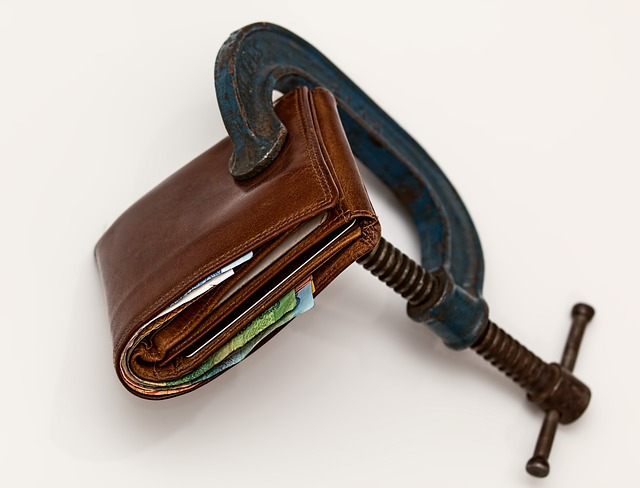How Debt Consolidation Helps Thousands Regain Financial Control
Managing multiple debts can feel overwhelming, especially when juggling various payment dates, interest rates, and minimum amounts. Debt consolidation offers a strategic approach that has helped thousands of Americans simplify their financial obligations and regain control over their money. This financial strategy combines multiple debts into a single payment, often with better terms and lower overall costs.

What Is Debt Consolidation and How Does It Work?
Debt consolidation is a financial strategy that combines multiple debts into one new loan or payment plan. Instead of managing several credit card bills, personal loans, or other debts separately, you merge them into a single monthly payment. This approach typically works through balance transfer credit cards, personal loans, home equity loans, or debt management plans offered by credit counseling agencies.
The process begins with evaluating your current debts, including balances, interest rates, and monthly payments. You then choose a consolidation method that offers better terms than your existing debts. The new loan or credit line pays off your existing debts, leaving you with just one payment to manage each month.
Can You Really Consolidate Your Payments and Breathe Easier?
Yes, debt consolidation can significantly reduce financial stress by simplifying your payment schedule. Instead of remembering multiple due dates and amounts, you make one payment each month. This streamlined approach reduces the risk of missed payments and late fees, which can further damage your credit score and increase your debt burden.
Many people find that having a single payment makes budgeting easier and more predictable. You’ll know exactly when your payment is due and how much you need to pay, making it simpler to plan your monthly expenses and avoid financial surprises.
Is Debt Consolidation a Smarter Way to Lower Interest and Stress?
Debt consolidation can indeed be a smart strategy for reducing both interest costs and financial stress, but it depends on your specific situation. If you qualify for a consolidation loan with a lower interest rate than your current debts, you could save hundreds or thousands of dollars over time. Credit cards often carry interest rates between 18-29%, while personal loans for debt consolidation typically range from 6-36%, depending on your creditworthiness.
The stress reduction comes from simplified payments and potentially shorter payoff periods. Many consolidation loans have fixed terms, giving you a clear timeline for becoming debt-free. This certainty can provide peace of mind that’s difficult to achieve when making minimum payments on multiple revolving credit accounts.
What Are the Different Types of Debt Consolidation Options?
Several debt consolidation methods are available, each with distinct advantages. Balance transfer credit cards offer promotional periods with 0% interest, typically lasting 12-21 months. These work best for smaller debt amounts that you can pay off during the promotional period.
Personal loans provide fixed interest rates and set repayment terms, usually ranging from two to seven years. Home equity loans or lines of credit offer lower interest rates but use your home as collateral. Debt management plans through nonprofit credit counseling agencies negotiate with creditors to reduce interest rates and create manageable payment schedules without requiring new loans.
How Does Debt Consolidation Impact Your Credit in America?
In the United States, debt consolidation can have both positive and negative effects on your credit score initially. Applying for new credit typically results in a hard inquiry, which may temporarily lower your score by a few points. However, if you use consolidation to pay off credit card balances without closing the accounts, your credit utilization ratio improves, which can boost your score over time.
The Federal Trade Commission notes that successful debt consolidation often leads to improved credit scores as borrowers make consistent, on-time payments and reduce their overall debt burden. Most Americans see credit score improvements within three to six months of implementing a successful consolidation strategy, provided they avoid accumulating new debt on the paid-off accounts.
What Are the Real Costs of Debt Consolidation Services?
Understanding the costs associated with debt consolidation is crucial for making an informed decision. Personal loan interest rates for debt consolidation typically range from 6% to 36% annually, depending on your credit score and income. Balance transfer cards may charge transfer fees of 3-5% of the transferred amount, plus the regular APR after promotional periods end.
| Service Type | Provider Examples | Cost Range | Key Features |
|---|---|---|---|
| Personal Loans | SoFi, LightStream, Discover | 6.99%-24.99% APR | Fixed rates, no fees |
| Balance Transfer Cards | Chase Slate Edge, Citi Simplicity | 0% intro APR, 14.74%-24.74% regular | 12-21 month promo periods |
| Credit Counseling | NFCC Members, GreenPath | $0-$50 setup, $25-$75 monthly | Nonprofit services, education |
| Home Equity Loans | Wells Fargo, Bank of America | 6%-12% APR | Lower rates, tax deductible interest |
Prices, rates, or cost estimates mentioned in this article are based on the latest available information but may change over time. Independent research is advised before making financial decisions.
Debt consolidation represents a practical solution for many Americans struggling with multiple debts. While it’s not suitable for everyone, those who qualify for better interest rates and can commit to avoiding new debt often find significant financial relief. The key to success lies in choosing the right consolidation method for your situation and maintaining disciplined financial habits after consolidation. Before proceeding, carefully compare offers from multiple lenders and consider consulting with a nonprofit credit counselor to ensure debt consolidation aligns with your long-term financial goals.



